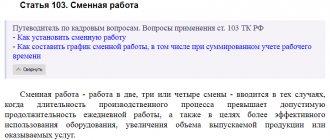ST 91 of the Criminal Code of the Russian Federation.
1. A warning consists of explaining to a minor the harm caused by his act and the consequences of repeated commission of crimes provided for by this Code.
2. Transfer to supervision consists of assigning to parents or persons replacing them, or to a specialized state body, the responsibility for educational influence on a minor and monitoring his behavior.
3. The obligation to make amends for the harm caused is imposed taking into account the property status of the minor and the availability of appropriate work skills.
4. Restrictions on leisure time and the establishment of special requirements for the behavior of a minor may include a ban on visiting certain places, using certain forms of leisure, including those related to driving a motor vehicle, limiting stay outside the home after a certain time of day, traveling to other areas without the permission of a specialized state organ. A minor may also be required to return to an educational organization or find employment with the help of a specialized government agency. This list is not exhaustive.
Commentary to Art. 91 Criminal Code
1. A warning is the mildest compulsory educational measure; it is of an indefinite (one-time) and public nature and, as a rule, is announced by a judge in the courtroom.
2. When transferring a minor to the supervision of parents or persons replacing them, the court must make sure that these persons have a positive influence on the teenager, correctly assess what he has done, and can ensure appropriate behavior and daily control of the minor. To do this, it is necessary to request characterizing material, check the living conditions of the parents or persons replacing them, the possibility of financial support for the teenager, etc.
3. Making amends for the harm caused involves compensating minors for the negative consequences of the crime they committed. The type of harm that a minor must compensate is not defined by law. Accordingly, the court may impose on the minor the obligation to compensate for both material and moral damage.
4. In part 4 of Art. 91 of the Criminal Code contains an approximate list of requirements and restrictions applicable to a minor. In general, these requirements must be reasonable, not cruel, and not harmful to the minor.
Grounds for restriction of freedom in accordance with Art. 91 Code of Criminal Procedure of the Russian Federation
An investigator/inquiry officer may detain a citizen suspected of an unlawful act for which imprisonment is provided when:
- This subject is caught while directly performing the action or immediately after it.
- Eyewitnesses/victims will point to this citizen as being involved in the act.
- Traces were found on his face, clothes, on his person, in his home, clearly indicating that this person had committed an assault.
One of the above circumstances is sufficient for detention.
Second commentary to Art. 91 of the Criminal Code of the Russian Federation
1. The use of compulsory measures of educational influence is regulated by the Law of the Russian Federation of June 23, 2021 No. 182-FZ “On the fundamentals of the system for the prevention of neglect and juvenile delinquency.” In accordance with the legislation of the Russian Federation, compulsory educational measures can be applied to minors by the Commission on Minors and the Protection of Their Rights outside of criminal liability in order to prevent their offenses and ensure social control over minors with deviant behavior.
2. Warning (Part 1 of Article 91 of the Criminal Code). Every minor who is released from criminal liability (or punishment) when a warning is applied to him as a compulsory educational measure, not only comes to the attention of the internal affairs body and the Commission on Minors and the Protection of Their Rights, but inevitably becomes the object of mandatory individual preventive work . A certificate is drawn up about the results of the conversation with the minor (as well as his parents or legal representatives), which is attached to the registration and preventive card or registration and preventive file.
3. Transfer to the supervision of parents or persons replacing them, or a specialized state body (Part 2 of Article 91 of the Criminal Code) as a compulsory measure of educational influence is addressed not to the minor himself, but to persons who are charged by the court with the responsibility for educational influence on the minor and control over his behavior. In accordance with Article 7 of the Decree of the Government of the Russian Federation dated November 6, 2013 No. 995 “On approval of the Model Regulations on Commissions for Minors and the Protection of Their Rights,” commissions apply enforcement measures against persons who do not fulfill their assigned duties. The compulsory nature of these duties is ensured by the application of an administrative fine in case of non-fulfillment.
4. The obligation to make amends for the harm caused (Part 3 of Article 91 of the Criminal Code) is assigned taking into account the property status of the minor and his work skills. The property status of a minor should not be equated with his independent income. It is determined by Article 60 of the Family Code of the Russian Federation. When applying the measure under consideration, it is necessary to weigh the amount of damages against all the circumstances specified in Article 60 of the Family Code of the Russian Federation: receipt of maintenance from parents and other family members; amounts of alimony, pensions, benefits due to a minor; property received as a gift or by inheritance; property rights determined by civil law. Taking into account the work skills of a minor pursues educational goals: attracting personal efforts to make amends for the harm caused. In this aspect, labor skills should not be identified with qualifications, but can be characterized as the feasible efforts of a minor, sufficient to satisfy the interests of the victim in terms of compensation for the harm caused to him.
5. Restriction of leisure time and establishment of special requirements for the behavior of a minor (Part 4 of Article 91 of the Criminal Code). The forms of restriction of leisure and the content of special requirements for the behavior of a minor are not limited by law. They can ensure the elimination of conditions conducive to the commission of a new crime or offenses, and prevent antisocial behavior of a minor. In addition, forms of restriction of leisure time and the content of special requirements for the behavior of a minor can serve the purpose of ensuring that a specialized government body is informed about the location (stay), residence of a minor, place of study or work. In order to educate a minor, requirements may be imposed on him, the fulfillment of which in this particular case can contribute to the formation of positive social attitudes, work skills, etc.
Article 91 of the Code of Criminal Procedure of the Russian Federation. Grounds for detaining a suspect (current version)
1. Detention of a suspect is a measure of procedural coercion applied by the body of inquiry, interrogating officer, investigator for a period of no more than 48 hours from the moment of actual detention of a person on suspicion of committing a crime (clause 11 of article 5 of the Code of Criminal Procedure). The essence of detention is the short-term holding of a person in custody without the prior permission of the head of the investigation agency, the prosecutor or the court. In this case, detention is divided into two types: detention of a suspect and detention of an accused. For the detention of the accused, see paragraph 10 of the commentary. to this article.
The Code of Criminal Procedure provides for the possibility of taking into custody a convicted person who is maliciously evading serving a criminal sentence not involving imprisonment, pending consideration of the issue of replacing this type of punishment with a more severe one (clause 18 of Article 397). The period of such detention is determined by the court up to 30 days. The long duration of this coercive measure and the preliminary decision of the court equate it to the use of a preventive measure in the form of detention in order to ensure the execution of a sentence. To ensure a thirty-day detention, the Department of Internal Affairs has the right to detain a convicted person for up to 48 hours, however, this detention is regulated by the Penal Code of the Russian Federation (Part 2, Article 30; Part 4, Article 32; Part 4, Article 46).
Criminal procedural detention should be distinguished from actual detention, administrative detention (Articles 27.3 - 27.6 of the Administrative Code), detention of a convicted person for up to 30 days in case of evasion of execution of punishment (Articles 30, 32, 46, 58, 97 PEC). Unlike detention, detention is an urgent, short-term detention, has special grounds, goals, application procedure, and always precedes possible detention.
2. Detention is always an urgent measure of procedural coercion (on the concept of an urgent situation, see the commentary to Article 157). Due to its urgent nature, the detention is carried out without the consent of the head of the investigation department, the prosecutor or a court decision. It is impossible to detain a suspect twice for committing the same crime, since after the first detention the urgency of the investigation situation is lost. Repeated detention of the accused on the same request for a preventive measure in the form of detention is not allowed.
3. Detention can be carried out by an investigator, an inquiry agency and an interrogating officer. At the same time, the decision of the investigator on detention and the protocol of detention drawn up by him do not require approval by the head of the inquiry body. See comment. to paragraph 17 of Art. 5; Art. 41.
4. The purposes of detaining a suspect are to determine: 1) the person’s involvement in the commission of a crime; 2) the need for detention and ensuring this preventive measure. If these circumstances have already been clarified, then detention is impossible. Detention to obtain a confession from a suspect is not permitted.
5. Detention is permitted for crimes punishable by imprisonment, usually more than 2 years. Consequently, detention is possible only if there is a decision to initiate a criminal case. A special detention procedure applies to persons with official immunity (Article 449).
6. The article under comment provides for four grounds for detention.
Clause 1 part 1 art. 91 of the Code of Criminal Procedure provides for actual detention (capture) during the suppression of a crime (as well as preparation, attempt), at the scene of the commission of a crime, or as a result of the pursuit of a person immediately after the commission of a crime. The actual arrest can be carried out by any person (victim, eyewitnesses, police officers). In this case, the investigator or interrogating officer who participated in the actual detention is subject to disqualification as future witnesses (Part 1 of Article 61), if the actual detention was carried out before the initiation of a criminal case and there were no other eyewitnesses to the crime.
7. The indications of victims or eyewitnesses cannot serve as a basis for detention if they assume that a crime has been committed by this person (based on guesses, inferences); they speak from hearsay or cannot indicate the source of their knowledge (clause 2, part 2, article 75).
8. Obvious traces of a crime do not require special knowledge to identify them; they are obvious. Such traces may be the presence of bodily injuries, physical evidence (for example, instruments and objects of a crime, traces of blood).
9. Other data that gives grounds to suspect a person of committing a crime, as a basis for detention, are less compelling evidence (similarity of the suspect’s appearance with the description of the criminal, confession, testimony of persons who are not eyewitnesses, etc.) and are used if available one of the four additional conditions specified in Part 2 of the commented article.
According to the meaning of part 2 of the comment. Article detention can be used to ensure the appearance of the suspect and accused in court to consider a request to apply a preventive measure in the form of detention. According to Part 3 of Art. 210 a wanted accused may be detained in a manner established by analogy with the institution of detention of a suspect, in order to resolve the issue of a preventive measure.
10. Detention of the accused is an urgent measure of procedural coercion, the content of which consists of short-term detention of the accused in order to immediately bring him to court to consider the petition of the criminal prosecution authorities to choose a preventive measure in the form of detention. The formation of the institution of detention of the accused is associated with the prevention of detention in absentia (in the absence of the accused - part 4 - 5 of Article 108).
The detention of the accused has special grounds, goals, motives and conditions. The basis for it is the need to consider in court the investigator’s justified request to select a preventive measure in the form of detention in relation to the wanted accused. The purpose is to bring the accused promptly before the court for consideration of the said petition. The motive is the fear that the accused will avoid appearing at the trial. The condition is the issuance of a reasoned decision to bring him into custody as an accused (and in exceptional cases - an indictment, since during an inquiry, as a general rule, detention is not used).
11. It seems that the factual grounds for detention must be established with the help of criminal procedural evidence: protocols of investigative actions and other documents. The possibility of indicating the actual grounds for detention directly in the detention protocol is not excluded. Conditions of detention on the fourth basis - other data can be established without investigative actions. Some of them (unidentified identity) may be presumed. On the evidentiary value of the arrest report, see the commentary. to Art. 92.
Comment source:
Ed. A.V. Smirnova “COMMENTARY ON THE CRIMINAL PROCEDURE CODE OF THE RUSSIAN FEDERATION” (ARTICLE BY ARTICLE), 5th edition
SMIRNOV A.V., KALINOVSKY K.B., 2009
Third commentary to Article 91 of the Criminal Code of the Russian Federation
1. The main purpose of applying the provisions listed in Art. 91 of the Criminal Code of measures - to ensure that the teenager feels the weight of responsibility for the harm caused by his act, realizes that his behavior is under the close control of relevant persons and organizations, whose task is to help him improve and prevent new offenses.
2. The 1996 Criminal Code of the Russian Federation provides for the transfer of minors to the supervision of not only parents or persons replacing them, but also a specialized government body that provides corrective influence on the minor and control over his behavior.
3. The most serious, of course, is “restricting leisure time and establishing special requirements for the behavior of a minor.”
When it is implemented, the minor is placed in conditions that make it possible to significantly protect him from the negative influences of the microenvironment and direct him towards normal, lawful behavior. At the same time, the list of special requirements imposed on him and set out in Part 4 of Art. 91 of the Criminal Code, is not exhaustive and can be creatively supplemented with rational measures that have an effect in the re-education of a teenager. ‹ Article 90. Application of compulsory measures of educational influenceUp Article 92. Exemption from punishment of minors ›
Federal Law of May 5, 2014 No. 91-FZ
RUSSIAN FEDERATION
THE FEDERAL LAW
On the application of the provisions of the Criminal Code of the Russian Federation and the Criminal Procedure Code of the Russian Federation in the territories of the Republic of Crimea and the federal city of Sevastopol
Adopted by the State Duma on April 18, 2014
Approved by the Federation Council on April 29, 2014
(As amended by Federal Law dated June 23, 2016 No. 189-FZ)
Article 1
Criminal proceedings in the territories of the Republic of Crimea and the federal city of Sevastopol are carried out according to the rules established by the criminal procedural legislation of the Russian Federation, taking into account the provisions of the Federal Constitutional Law of March 21, 2014 No. 6-FKZ “On the admission of the Republic of Crimea to the Russian Federation and the formation of Russian Federation of new subjects - the Republic of Crimea and the federal city of Sevastopol" and this Federal Law.
Article 2
The criminality and punishability of acts committed in the territories of the Republic of Crimea and the city of Sevastopol before March 18, 2014 are determined on the basis of the criminal legislation of the Russian Federation. A turn for the worse is not allowed.
Article 3
1. Materials based on which the pre-trial investigation of acts containing signs of crimes were not completed as of March 18, 2014 (regardless of the citizenship of the person suspected of committing a crime), are transferred to the prosecutor to determine the type of criminal prosecution and jurisdiction in accordance with the Criminal Procedure Code Russian Federation.
2. Based on the results of consideration of the materials specified in part 1 of this article, the prosecutor, in accordance with paragraph 12 of part two of Article 37 of the Criminal Procedure Code of the Russian Federation, issues a reasoned resolution, which, together with the received materials, is sent to the relevant preliminary investigation body or inquiry body for adoption decisions provided for by the Criminal Procedure Code of the Russian Federation. The prosecutor, in accordance with part four of Article 20 of the Criminal Procedure Code of the Russian Federation, sends materials about a criminal offense of private prosecution to the head of the investigative body, investigator, inquirer for making a decision in accordance with the criminal procedure legislation of the Russian Federation.
3. If a criminal case is initiated in the manner prescribed by Chapter 20 of the Criminal Procedure Code of the Russian Federation, evidence obtained previously has the same legal force as if it had been obtained in accordance with the criminal procedure legislation of the Russian Federation. The assessment and verification of such evidence is carried out in accordance with the requirements established by Articles 87 and 88 of the Criminal Procedure Code of the Russian Federation.
4. If the act for which the pre-trial investigation was conducted is not a crime in accordance with the Criminal Code of the Russian Federation, and also in the absence of grounds for initiating a criminal case, a decision is made in accordance with Article 148 of the Criminal Procedure Code of the Russian Federation.
Article 4
A decision to terminate proceedings due to the absence of a criminal offense, due to the absence of a criminal offense in the act, or due to the death of a suspect (accused), made before March 18, 2014, has the force of a decision to refuse to initiate a criminal case. An appeal of such a decision is carried out in the manner established by the Criminal Procedure Code of the Russian Federation, taking into account the provisions of Part 19 of Article 9 of the Federal Constitutional Law of March 21, 2014 No. 6-FKZ “On the admission of the Republic of Crimea to the Russian Federation and the formation of new entities within the Russian Federation — The Republic of Crimea and the federal city of Sevastopol.”
Article 5
The period of preliminary investigation when initiating a criminal case based on the materials of the pre-trial investigation is calculated from the moment the criminal case is initiated in the manner established by Articles 162, 223 and 2266 of the Criminal Procedure Code of the Russian Federation. The time for which a person was detained, held in custody, or was under house arrest during the pre-trial investigation of a criminal offense until March 18, 2014 is counted towards the period of his detention or the period of house arrest during the preliminary investigation in accordance with Articles 107 and 109 of the Criminal Procedure Code of the Russian Federation.
Article 6
1. Materials of criminal proceedings for which trial has not been scheduled before March 18, 2014, are returned by the court to the prosecutor.
2. If the trial in a criminal case was started before March 18, 2014, it continues in the manner established by the Criminal Procedure Code of the Russian Federation, in the absence of grounds for returning the criminal case to the prosecutor in accordance with Article 237 of the Criminal Procedure Code of the Russian Federation . At the request of the prosecutor, the actions of the defendant are subject to reclassification by the court in accordance with the Criminal Code of the Russian Federation, which does not worsen the situation of the defendant. In this case, the punishment is imposed taking into account the requirements of Article 10 of the Criminal Code of the Russian Federation. The trial in the courts of first and appellate instances in a criminal case, the jurisdiction of the court specified in part three of Article 31 of the Criminal Procedure Code of the Russian Federation, continues with the court considering this case.
3. At the request of a party to criminal proceedings, the court has the right to provide her with the opportunity to familiarize herself with those materials of the criminal case with which she was not previously familiar, setting a deadline for such familiarization.
Article 7
The provisions of paragraphs 2 and 21 of part two of Article 30 of the Criminal Procedure Code of the Russian Federation are applied in the territories of the Republic of Crimea and the federal city of Sevastopol from January 1, 2021. (As amended by Federal Law dated June 23, 2016 No. 189-FZ)
Article 8
1. Court decisions that have entered into legal force, adopted in the territories of the Republic of Crimea and the city of Sevastopol before March 18, 2014, have the same legal force (including for the purposes of executing criminal penalties) as court decisions adopted in the territory of the Russian Federation.
2. Complaints and submissions against court decisions adopted in the territories of the Republic of Crimea and the city of Sevastopol before March 18, 2014 are considered in the manner and within the time limits established by the Criminal Procedure Code of the Russian Federation, taking into account the provisions of Part 19 of Article 9 of the Federal Constitutional Law of March 21 2014 No. 6-FKZ “On the admission of the Republic of Crimea to the Russian Federation and the formation of new entities within the Russian Federation - the Republic of Crimea and the federal city of Sevastopol.”
3. Judicial decisions that have entered into legal force and made in criminal proceedings in the territories of the Republic of Crimea and the city of Sevastopol before March 18, 2014 are recognized in the part relating to their execution on the territory of the Russian Federation, in accordance with the legislation of the Russian Federation.
4. If the Criminal Code of the Russian Federation provides for a more lenient punishment or can otherwise improve the situation of the convicted person, at his request or representation of the prosecutor, institution or body executing the punishment, the court decision is brought into compliance with the legislation of the Russian Federation in the manner established by Articles 397 and 399 of the Criminal Procedure Code of the Russian Federation.
Article 9
Harm caused to citizens as a result of criminal prosecution in the territories of the Republic of Crimea and the city of Sevastopol before March 18, 2014 is not subject to compensation in the manner prescribed by Chapter 18 of the Criminal Procedure Code of the Russian Federation.
Article 10
This Federal Law applies to legal relations related to acts committed in the territories of the Republic of Crimea and the city of Sevastopol before March 18, 2014.
Article 11
This Federal Law comes into force on the date of its official publication.
President of the Russian Federation V. Putin
Moscow Kremlin
May 5, 2014
No. 91-FZ
Purpose of the measure
Detention under Articles 91 and 92 of the Code is permitted only in open criminal proceedings. It is aimed at clarifying the subject’s involvement in the act and resolving the issue of placing him in custody.
The law prohibits the use of the provisions of Art. 91 of the Code of Criminal Procedure of the Russian Federation to obtain a confession of a crime from a person. No one is obliged to confirm their non-involvement in the attack. The burden of proof, as well as refutation of the arguments presented in defense of a person, rests with the prosecution.
Report a crime
It must be taken into account that the primary source of information about the act reported by the citizen who committed it is a statement written by him in his own hand or recorded in the protocol of confession. In judicial proceedings, this document is recognized as independent evidence.
Within the meaning of the legislation, as well as the explanations of the Plenum of the Supreme Court, enshrined in Resolution No. 2 of 2007, a person’s report of an assault made by him after his arrest does not exclude the recognition of this statement in the future as a mitigating circumstance.
Limits of application of measures
Taking into account the presumption of innocence, the detention of the subject according to the rules of Art. 91 of the Code of Criminal Procedure of the Russian Federation, taking him into custody in the future should be a last resort, not the rule, but rather the exception to it. In this case, deprivation of liberty should be considered as a sanction to be imposed last. Such punishment is permissible to apply if another measure, in accordance with the nature and severity of the act, is clearly insufficient.
Restrictions that are imposed on citizens detained on suspicion of involvement in crimes must be consistent with the purpose for which they were applied and be the minimum necessary.
Suspect
This is the subject:
- In respect of whom criminal proceedings have been initiated according to the rules and grounds established by Chapter 20 of the Code.
- Detained in accordance with Art. 91, 92 of the Code of Criminal Procedure of the Russian Federation.
- In respect of whom a procedural measure of restraint has been applied prior to official presentation in accordance with Article 100 of the Code.
- Notified of suspicion of his involvement in the act.
This list is contained in norm 46 of the code and is considered exhaustive.
Nuances
The rules of the Code of Criminal Procedure establishing the rules of detention do not introduce any restrictions that go beyond the scope of the Constitution. On the contrary, according to experts, the articles of the code significantly narrow the possibility of their application.
The moment of actual forced restriction of a subject’s freedom is considered to be the moment of deprivation of his ability to move freely. Detention may be accompanied by the use of special means and a personal announcement to the person about the implementation of the preventive measure.
Important point
If law enforcement agencies had information about the crime (procedural documents, reports of victims, witnesses, etc.), and the detained subject, in turn, knew about it, his confirmation of the fact of involvement in the act cannot be considered as a confession. It is recognized as another mitigating circumstance.
Art. 91 Code of Criminal Procedure of the Russian Federation with comments
Restriction of the freedom of a citizen suspected of involvement in an attack is one of the procedural coercive measures. It is mentioned in Article 5 of the Code. According to paragraph 11 of this norm, the period of detention under Art. 91 of the Code of Criminal Procedure of the Russian Federation – no more than 48 hours. The specified period begins from the moment of actual forced restriction of the subject’s freedom.
It should be noted that the possibility of limiting the rights to personal integrity and freedom is provided for by the Constitution. As established in Part 2 of Article 22 of the Basic Law, imprisonment and detention are permitted only by court order. Before its adoption, a person’s freedom may be limited when applying Art. 91 of the Code of Criminal Procedure of the Russian Federation for a period of no more than 2 days.
The Constitution, while providing for the possibility of applying a preventive measure to a subject, linking it with the need to protect the constitutional system, the state, the population, the health of other citizens, their interests and rights, does not establish specific grounds, procedure and conditions under which detention is allowed, referring this issue to its competence federal legislator.
Special cases
Special rules are provided for persons with parliamentary immunity. They are mentioned in Article 449 of the Code. These include:
- Members of the Federation Council.
- State Duma deputies.
- Judges of the federal and magistrate courts.
- Prosecutor.
- Chairman, his deputy, auditors of the Accounts Chamber.
- Former President of the Russian Federation.
- Commissioner for Human Rights.
If they are detained on the basis of the provisions of Art. 91 of the Code of Criminal Procedure of the Russian Federation, they must be immediately released after identification.
If a preventive measure was applied to an assistant of a member of the Federation Council or a State Duma deputy, the relevant parliamentarian is informed about this immediately. The corresponding regulation is contained in Article 37 of Federal Law No. 3.





